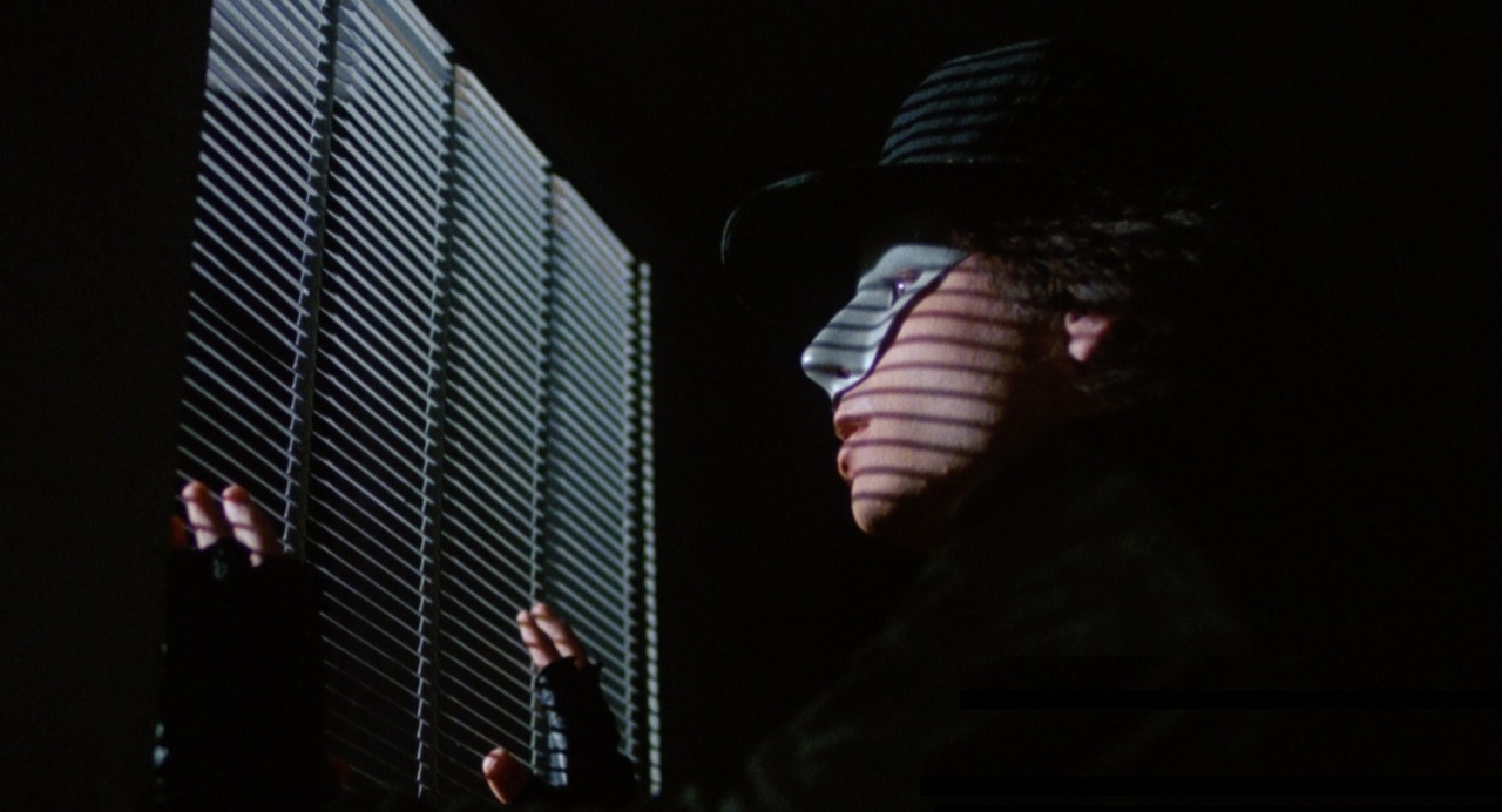A young man named Eric apparently dies in a suspicious house fire after saving his girlfriend, Melody. One year later, a new mall is constructed atop where Eric’s house once stood, where a shadowy, uninvited guest is preying on the mall’s crooked developers.
In Phantom of the Mall: Eric’s Revenge, director Richard Friedman takes a shot at the slasher genre by blending elements of horror and thriller, set within the confines of a shopping mall. The film’s plot revolves around a scarred and vengeful figure named Eric, who hides in the shadows of a new mall after the destruction of his home and the presumed death of his girlfriend, Melody, in a suspicious fire. As the mall’s grand opening approaches, Eric’s presence becomes increasingly apparent, and a deadly game of cat and mouse ensues.
One of the notable aspects of the film is its dark and eerie atmosphere. The unlit store where Eric steals clothes and a crossbow sets the tone early on, establishing the lurking danger within the mall. The lighting is effectively used to create tension, making the audience constantly aware that danger could be lurking just around the corner. Richard Friedman succeeds in building a sense of foreboding that keeps viewers on the edge of their seats.
The character of Eric is intriguing, with his disfigured face and the obsession he holds for his former girlfriend, Melody. This unrequited love provides the motive for his violent acts, as he becomes a self-proclaimed avenger for Melody’s safety. However, as the story unfolds, it becomes evident that Eric’s actions are more sinister than heroic, blurring the line between victim and villain. This complex portrayal of the antagonist adds depth to the narrative and provides a fresh take on the slasher archetype.
The film does not shy away from showcasing Eric’s brutal methods of dealing with those who threaten Melody. From the mall maintenance worker who meets a gruesome end in the ventilation ducts to the guard spying on women in the dressing room, Eric’s kills are creatively staged and will certainly satisfy fans of the horror genre. The use of a forklift and an automatic box crusher as murder weapons adds a unique and gruesome touch to the movie’s death sequences.
As the tension escalates, the story introduces a subplot involving the mall owner’s son, Justin, who harasses Melody’s friend Susie. This subplot feels somewhat disconnected from the main narrative and could have been better integrated into the overall plot. While it adds a layer of suspense and a few more victims for Eric’s wrath, it does little to advance the main story or contribute significantly to character development.
The introduction of reporter Peter Baldwin as a potential love interest for Melody adds a romantic element to the film. However, the romantic subplot feels underdeveloped and lacks chemistry between the characters. Peter’s investigation into the mall fire and Eric’s reappearance attempts to inject mystery and intrigue, but the revelations fall flat, failing to deliver the impact and shock that such twists should evoke.
A pivotal moment in the film comes when Melody confesses to Eric that she no longer loves him. The film explores themes of obsession, unrequited love, and the destructive consequences of holding onto the past. Unfortunately, the emotional impact of this revelation is somewhat undermined by the film’s limited character development and occasionally clunky dialogue.
The climax of Phantom of the Mall: Eric’s Revenge delivers a mix of action and suspense as Melody, Peter, Buzz, and Susie attempt to escape the mall before Eric’s time-delay bomb detonates. The tension rises as they navigate the labyrinthine tunnels beneath the mall while Eric, driven by madness and revenge, goes on a killing spree to eliminate those he believes responsible for his past tragedies.
While the film boasts some genuinely suspenseful moments, it falls victim to some of the clichés that plague the slasher genre. Characters make questionable decisions, and the film often relies on standard horror movie tropes. The lack of fully fleshed-out characters makes it challenging to connect with and invest in their fates, limiting the emotional impact of the story.
Phantom of the Mall: Eric’s Revenge attempts to put a new spin on the classic slasher formula by setting the horror within the confines of a shopping mall but it mostly fails. Richard Friedman’s direction successfully creates a tense and eerie atmosphere, and the portrayal of Eric as a complex and vengeful antagonist adds depth to the narrative. However, the film suffers from underdeveloped characters, a weak romantic subplot, and some reliance on genre clichés. While it offers a few thrilling and gruesome moments, it ultimately falls short of becoming a standout entry in the slasher genre. If you’re a die-hard fan of ’80s horror or curious about the melding of shopping malls and horror, Phantom of the Mall: Eric’s Revenge might scratch that nostalgic itch. However, if you’re seeking a more innovative and substantial horror experience, this film might not be the best pick.

